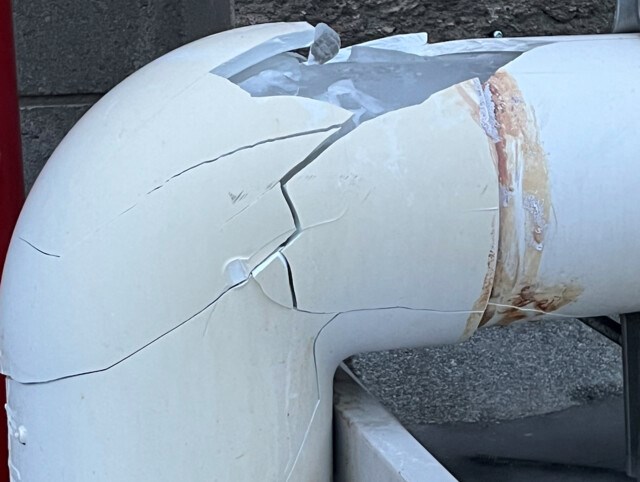Did you know that if you go on vacation and leave your house empty for four days or more and a pipe bursts that your home insurance might not coverage the damage?
It’s one of the hard lessons some British Columbians could be learning after the cold snap that hit earlier this month. While most homeowner insurance policies cover damage caused by burst/frozen pipes (not the damage to the pipes themselves), there is a big caveat.
“The big thing is that during the heating season, it says in every policy I have ever seen, that if your pipes freeze and you get water damage during the heating season and you’ve been away from your house for more than four consecutive days, there is no coverage for the water damage,” says Shaun Sinclair, head of BCIT’s General Insurance and Risk Management program.
However, if you manage the risk, your coverage should be intact. You can do that by having a competent person check your home daily to make sure the heat is on and there is no water damage
“The second one is before you go away, if you shut the water off and drain your toilets and let the taps run until there’s no more water in them, they’ll cover you if there’s some damage. Because what happens in that case is you’ve managed your risk and if a pipe does freeze, the water damage will be so minimal that it probably won’t cause any damage.
“The third thing you can do is to have a monitored alarm system for water damage. So if something happens you have to have someone attend as soon as possible to turn the water off,” Sinclair explains.
Burst pipes in mobile homes
A Castanet reader reached out last week to say her claim was denied because it is not heated under her mobile home. Unfortunately, Sinclair says that’s often the case.
“If your mobile home isn’t skirted properly or either heated or insulated properly, there’s almost a 100% chance when it gets to -10 C your pipes are going to freeze and burst. And that’s why there’s no coverage.
“If the pipes were inside the house, that would have been fine, but because they’re below the surface of the ground there would be no coverage for that.”
He points out that generally the damage would be limited to underneath the trailer and unless it has a foundation, the damage would be limited. Insurance companies do not generally pay to replace the burst pipes, only whatever in your home is affected by the water leak. He says if you live in a mobile home, heat tape is a necessity in areas where temperatures drop below -10 C.
Coverage for condo owners
Things can be more complicated for condo owners, depending on what their personal insurance covers and what the strata insurance covers.
“It depends on your strata unit bylaws how far out of your painted walls do you go. And a lot of them now are in the exterior walls. So as a unit owner, you’ve got almost nothing to do with the pipes that were run in your dwelling before it was built, but you are responsible for them.”
Sinclair said there was a water damage claim at condo building last week after a sprinkler system leaked. He says the sprinkler piping was installed above the insulation, meaning there would be no coverage because it was in the unheated space of the home. Now that unit owner could be responsible for damage to their unit and any other part of the building.
That’s why you should make sure your broker goes over all the options and risks. You should also very carefully read your policy and the strata corporation documents.
“Also, with water damage claims especially, deductibles are getting huge. sometimes $100,000 or $200,000. So, if there’s a great big water damage claim, unit owners get called on to pay that. You can buy insurance coverage that can cover off deductible.
“So make sure you spend a lot of time talking with your insurance professional, your broker, and make sure you’re covered,” he adds.
He also cautions those who run a business out of their home or store stock for their business to talk to their broker about the right kind of insurance to replace any damage items.
As for renters, Sinclair’s advice is get tenants insurance. It typically costs just a couple hundred dollars a year, but the liability coverage could protect you from having to pay out thousands.
“If I’m a young person living in an apartment or a basement suite and I cause a flood, or a candle starts a fire, or a pot on a stove causes a fire, I’m legally liable for all of that damage. Plus, I don’t have a place to live and no one is going to pay for my place to live.”
He says it just doesn’t make any sense to put yourself at such a risk just to save the cost of a cup of coffee a day.



